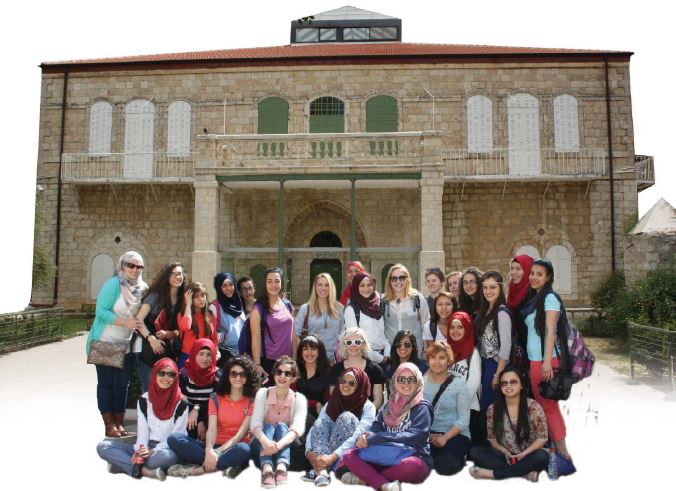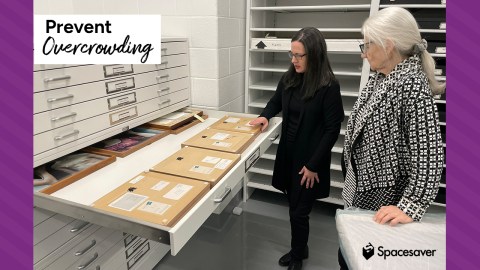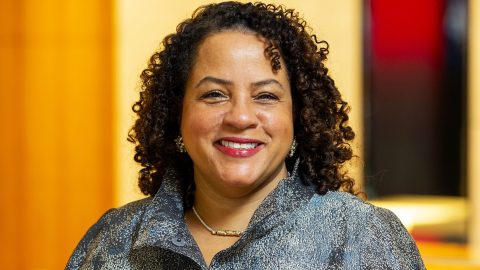
This article originally appeared in the September/October 2017 issue of Museum magazine.
It is difficult to imagine two partner museums with more different historical and cultural milieus than the Minnesota Historical Society in St. Paul and the Palestinian Heritage Museum in East Jerusalem. Yet our institutions share a commitment to strong teen programming, along with rich textile collections that inspire an exploration of identity across time and cultures.
In 2013, our museums partnered on a project called “Design Diaries International.” In an era of distrust between Americans and Arabs, this project worked to mitigate political tensions as participants explored the most every day of artifacts: clothing. The project sought to use clothing to create cross-cultural partnerships and increase understanding between young women from East Jerusalem and Minnesota’s Twin Cities. The girls reflected on the museums’ rich textile collections—along with historical context provided by older generations—to design garments representing their unique identities. Using their newfound knowledge and original designs, the two groups of girls then discussed the meaning of clothing in their lives and how it shapes their personal and national identities.
The girls used innovative communication techniques, including video diaries and chats, Pinterest boards, a closed Facebook group, and textiles research and design, to foster meaningful conversation about how what we wear helps us to understand who we are and how we present ourselves to the world. Through research, personal exploration, and conversation with their international counterparts, the girls explored the universal aspect of coming of age, contemporary and historical fashions, and some of the social, economic, and lifestyle considerations that include textile design across time. The project culminated in community events in Minnesota and East Jerusalem created and produced by the girls, that showcased their original designs.
We are Not that Different
As the girls worked together to learn more about the history and significance of textiles, they first noticed the differences in their international counterparts’ clothing. However, they also noticed similarities. Many of the girls in the Twin Cities community were of Hmong descent. The heavily embroidered Palestinian textiles drew comparisons to the bright colors and embroidered embellishment characteristic of traditional textiles. First- and second-generation Somali American girls also noticed that their Palestinian counterparts debate about wearing the hijab or headscarf as much as they do.
The young woman participants were not the only ones exposed to new ideas and beliefs through the project. Museum staff, program mentors, and community members all spoke highly about their experiences. Staff from both museums found the project provided a valuable opportunity to promote cross-cultural understanding between Americans and Palestinians at the individual and community levels, creating better understanding and closer relationships between youth from different backgrounds.
Opening Other Doors
Building on the success of our partnership with the Minnesota Historical Society, the Palestinian Heritage Museum continued its work to empower young women through international exchange opportunities. In 2016, we partnered with the Arab American National Museum in Dearborn, Michigan, for a project titled “Reel Stories.” The aim of the project was to empower young women through film-making by introducing them to role models in the global film industry; technical skills in film production; dialogues about gender and empowerment, identity and culture; and civic participation; as well as a chance to produce and screen their own films for international audiences.
Developing Improved Understanding
The Palestinian Heritage Museum aims to promote Palestinian national identity and peaceful dialogue through cultural programs and activities. As the director, I have actively worked to promote enhanced understanding and mutual respect between nations and communities across the world. Global partnerships enable people from different cultures and environments to learn and benefit from one another in so many ways. Dialogue and active partnership contribute to improved understanding and appreciation, opening the door for future and long-term cooperation—something that benefits us all.
Resources
This partnership was part of the Museums Connect program, an initiative of the US Department of State’s Bureau of Educational and Cultural Affairs, administered by the American Alliance of Museums.
The Alliance is committed to fostering global partnerships. We believe strong, lasting relationships between the US and global museums will mutually benefit and advance excellence for all. Although the Museums Connect program has ended, the Department of State still offers a variety of cultural programs including Communities Connecting Heritage, which links the US and international institutions focused on cultural heritage. More information can be found at eca.state.gov/programs-initiatives/cultural-diplomacy.
Khaled Khatib is director of the Palestinian Heritage Museum and Dar Isaaf Nashashibi Cultural Centre in East Jerusalem. He is a researcher and author of numerous publications on the restoration and rehabilitation of ancient buildings, with a specific interest in the old city of Jerusalem. He can be reached at khaledkhatib@hotmail.com.







